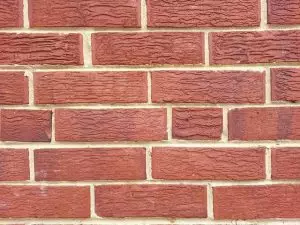Concrete basement repair is crucial for home stability and health, addressing issues like water intrusion, structural damage, and settling. Foundation Contractors specialize in crack sealing, drainage systems, waterproofing, and structural stabilization techniques using advanced methods and high-quality products. Homeowners should watch for signs of damage, such as cracks, moisture stains, and uneven floors, and consult Foundation Contractors promptly for professional repair and maintenance to prevent further complications and ensure long-lasting solutions. Budgeting varies based on damage extent and requires accurate assessments from experienced contractors. Regular maintenance, including proper drainage and inspection, is vital for safeguarding against future basement damage.
Basements are integral to home structure, yet they’re often overlooked until problems arise. Concrete basement repair is a crucial investment for any homeowner, addressing issues like cracks, water intrusion, and structural instability. This comprehensive guide explores various aspects of concrete basement repair, from understanding common causes to implementing effective solutions. We emphasize the role of qualified Foundation Contractors in ensuring lasting repairs and provide insights on budgeting, maintenance, and waterproofing techniques to keep your basement dry and secure.
Understanding Concrete Basement Repair: Common Issues and Causes

Concrete basement repair is a crucial aspect of maintaining a stable and healthy home. Understanding common issues and their causes is the first step in effective prevention and remediation. One of the most frequent problems is water intrusion, leading to mold growth and structural damage. This can result from cracks in the concrete, inadequate drainage systems, or high groundwater levels. Foundation contractors often address these by sealing cracks, installing interior or exterior drainage systems, or employing specialized products to divert water away from the basement walls.
Another prevalent issue is settling or shifting of the concrete due to soil movement. Over time, this can cause cracks, bulges, or uneven floors. Such structural problems require expert intervention from foundation contractors who may employ techniques like underpinning, piering, or wall stabilization to realign and support the concrete, ensuring long-term stability for your basement.
The Role of Foundation Contractors in Effective Basement Repairs

When it comes to concrete basement repair, foundation contractors play a pivotal role in ensuring effective and long-lasting solutions. These professionals are equipped with the expertise and tools necessary to assess and address various basement issues, such as cracks, leaks, and moisture problems. They employ advanced techniques and materials to stabilize and strengthen the existing foundation, preventing further damage and creating a dry, comfortable living space below grade.
Foundation contractors work closely with homeowners to understand their specific needs and concerns. They provide tailored solutions, offering a range of repair methods from simple crack patching to more complex structural stabilization. By employing experienced hands and high-quality products, these experts can effectively mitigate basement problems, enhancing the overall value and durability of the property.
Assessing the Damage: Identifying Signs of Concrete Basement Problems

Assessing the damage is a crucial step in concrete basement repair, and homeowners should be vigilant for signs of potential issues. One of the most evident indicators is cracks in the foundation walls or floor. These cracks can vary in width; small hairline fractures might not immediately concern you, but wider ones could suggest more severe structural problems. Look out for vertical or horizontal cracks as these are typical of settling or water damage.
Other signs include noticeable dips or uneven floors, which may indicate weakened concrete or water infiltration. Moisture-related issues often lead to mold growth, so check for stains or musty odors. If you notice any bulging walls or doors that don’t close properly, it’s time to consult foundation contractors. These symptoms could point to more significant structural damage, and early intervention by professionals is key to preventing further complications.
Techniques for Concrete Basement Crack Repair

Crack repair in concrete basements is a common concern for many homeowners, and there are several techniques to address this issue effectively. The first step is to identify the type of crack; structural cracks require professional attention from foundation contractors. These cracks indicate potential foundation problems and should be assessed by experts who can employ various repair methods such as injection molding or carbon fiber wrapping.
For smaller, non-structural cracks, there are DIY solutions available. One popular method involves applying an epoxy injection directly into the crack, which fills and supports it from within. Alternatively, using a hydraulic cement mix allows for a quick patch-up job, providing temporary relief until a more permanent solution can be implemented by a foundation contractor.
Waterproofing Solutions for a Dry Basement

Waterproofing is an essential step in ensuring your basement remains dry and free from potential damage. As a trusted foundation contractor, we offer various solutions to address this common issue. One effective method involves applying a waterproof membrane to the walls and floors, creating a barrier that prevents moisture penetration. This process can be done during initial construction or as a repair for older basements.
Another popular option is the installation of drainage systems, which collect and direct water away from your basement. These systems include exterior drainage solutions, such as grade slopes and downspout extensions, as well as interior measures like sump pumps and perimeter drains. By combining these waterproofing strategies, foundation contractors can effectively mitigate basement humidity and protect your space from costly repairs.
Structural Support and Stabilization Methods for Basements

Basements serve as the structural backbone of any building, and their repair should be left to professional foundation contractors who understand the intricacies of these intricate systems. Structural support and stabilization methods are essential to ensure the long-term integrity of a basement. One common approach is piecing and reinforcing with steel beams or plates, which can effectively stop further cracking and shifting. This method not only provides additional strength but also prevents water seepage and mold growth, addressing underlying issues that could compromise the entire structure.
Foundation contractors may also employ various techniques like carbon fiber wrapping or epoxy injection to fortify existing cracks, preventing them from expanding. These advanced methods are particularly useful in cases where the basement has already sustained damage but require careful assessment to determine the most suitable stabilization strategy. Effective structural support not only safeguards the building’s physical integrity but also preserves its value, making it a crucial investment for homeowners facing basement repair challenges.
Cost Considerations: Budgeting for Basement Repair Projects

When budgeting for a concrete basement repair project, it’s essential to consult with experienced foundation contractors who can provide transparent cost estimates. The price can vary greatly depending on factors like the extent of damage, required materials, and labor costs. Remember that these professionals have the expertise to offer tailored solutions, ensuring you receive the best value for your investment.
In terms of costs, small repairs like cracking and sealing might range from a few hundred dollars, while more comprehensive fixes such as structural support or full basement waterproofing can run into the thousands. It’s crucial to set aside a realistic budget and discuss payment plans with your chosen contractor to ensure the project aligns with your financial capabilities.
Maintenance Tips to Prevent Future Basement Damage

Regular maintenance is key to preventing future basement damage. One of the most important steps homeowners can take is to ensure proper drainage around their home, especially in areas prone to water accumulation. This involves clearing debris from gutters and downspouts, installing french drains or other water diversion systems, and filling in any low spots where water may collect. Additionally, regular inspection of basement walls for cracks or signs of moisture intrusion is crucial. Addressing these issues promptly by consulting with foundation contractors can prevent more serious damage down the line.
Other preventive measures include keeping basement windows clear of obstructions that could block ventilation, sealing any gaps around pipes or wiring entering the basement, and using vapor barriers to protect against humidity. Regular painting or sealing of concrete walls can also help to prevent water seepage. By implementing these maintenance tips, homeowners can significantly reduce the risk of costly basement repairs in the future, ensuring a dry and healthy living space for years to come.
